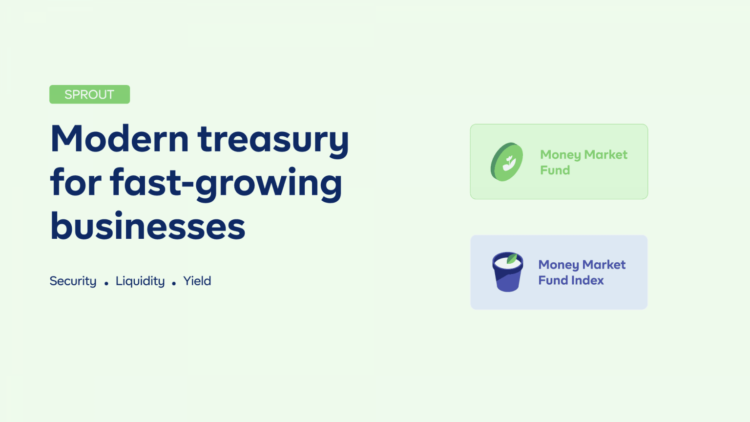Effective cash management is critical for the long-term success of any business, and managing excess cash is a key component of this.
When a business generates more cash than it needs for its day-to-day operations, it is left with excess cash that needs to be managed wisely. Neglecting excess cash management can lead to missed investment opportunities and increased risk exposure.
In this article, we provide a comprehensive guide and solution to help founders and large-scale business owners maximize returns on their excess cash.
We will cover traditional and alternative investment options, risk management strategies, and sustainable investing considerations. Our goal is to equip business owners with the knowledge they need to make informed decisions about excess cash management and investment.
Understanding Excess Cash
Excess cash is the cash that a business has beyond what is needed to cover its operating expenses, debt obligations, and other necessary expenses.
This cash can accumulate for a variety of reasons, such as strong sales, effective cost management, or a decrease in capital expenditures.
While having excess cash may seem like a positive thing, it can also be a liability if it is not managed effectively. Holding excess cash in low-yielding accounts can result in missed investment opportunities, and failing to manage excess cash can expose a business to risks such as inflation, currency fluctuations, and potential losses.
Strategies for Maximizing Returns on Excess Cash
These strategies can be broadly categorized into traditional and alternative investment options.
-
Traditional investment options
Money Market Funds
Money market funds are low-risk, low-yield investment options that invest in short-term debt securities such as commercial paper, certificates of deposit, and treasury bills. They also offer high liquidity, which means that investors can easily convert their investments to cash.
Certificate of Deposits (CDs)
CDs are fixed-income investments that pay a fixed rate of interest for a specified period. CDs are offered by banks and credit unions. They offer higher yields than money market funds, but the tradeoff is that they are less liquid and have a fixed term.
Bonds
Bonds are debt securities that are issued by corporations and the government. They offer higher yields than money market funds and CDs, but they also carry more risk. Bond prices are sensitive to changes in interest rates and inflation.
-
Alternative investment options
Private Equity
Private equity involves investing in privately-held companies that are not listed on the public stock market. These investments can be high-risk, high-reward investments as they typically involve investing in companies that are in the early stages of growth or are experiencing financial difficulties. They are illiquid and can take several years to realize returns.
Hedge Funds
Hedge funds are investment funds that use advanced investment strategies to achieve high returns. They invest in a variety of assets, including stocks, bonds, and commodities and are typically only available to accredited investors, and carry high fees.
Real Estate
Real estate investments can include purchasing rental properties, investing in real estate investment trusts (REITs), or participating in real estate crowdfunding. They offer the potential for high returns, but can also be illiquid and carry risks such as market fluctuations and property damage.
Venture Capital
Venture capital involves investing in early-stage companies with high growth potential. They can be high-risk, high-reward investments as they typically involve investing in companies that are in the early stages of development. Venture capital investments are illiquid and can also take several years to realize returns.
Comparison of investment options
Risk vs return analysis
Business owners should compare the risk and return of each investment option to determine which options are best suited for their excess cash. Generally, higher-risk investments offer higher returns.
Liquidity analysis
Business owners should consider the liquidity of each investment option. Low-liquidity investments mean it is difficult to convert to cash quickly.
Diversification analysis
Diversification is an important strategy for minimizing risk. Business owners should consider diversifying their excess cash investments across different asset classes to minimize their exposure to risk.
Generally, the best investment strategy for your excess cash will depend on your business’s goals, risk tolerance, and financial situation. As a business owner, you should carefully consider their investment options and work with a financial advisor to develop a strategy that is tailored to your specific needs.
Risks Associated with Excess Cash Investment
Here are some of the risks that large-scale business owners and C-level executives should be aware of when considering how to invest excess cash:
- Market volatility: All investments carry some level of risk, and the stock market can be particularly volatile.
- Illiquidity: Some investment options, such as real estate or private equity, can be illiquid.
- Credit risk: Investing in corporate bonds carries the risk that the issuer may default on its payments, leading to a loss of principal.
- Interest rate risk: When interest rates rise, the value of fixed-income securities can decline.
- Concentration risk: Investing too heavily in a single stock or sector, can increase the risk of losses if that investment underperforms.
- Managerial risk: If you choose to invest in alternative investments such as private equity or hedge funds, you are entrusting your money to a fund manager. If the manager makes poor investment decisions, it can lead to significant losses for your business.
How to Mitigate Excess Cash Investment Risks
While it is impossible to completely eliminate investment risk, there are steps that founders and C-level executives can take to mitigate the risks associated with investing excess cash.
- Diversify your investments: By spreading your investments across different asset classes, and sectors, you can reduce the impact of any single investment on your overall portfolio.
- Use naira-cost averaging: Rather than investing a large sum of money all at once, consider investing smaller amounts over time.
- Consider low-cost index funds: This can provide exposure to a broad range of investments at a lower cost.
- Work with a financial advisor: A financial advisor can help you develop a comprehensive investment strategy that is tailored to your business’s unique needs and risk tolerance.
- Monitor your investments regularly: It is important to regularly review your investments to ensure that they are still aligned with your goals.
By taking these steps to mitigate investment risk, you can help protect their excess cash investments while still seeking to maximize returns.
Sustainable Investing with Excess Cash
As businesses become increasingly focused on corporate social responsibility and sustainability, investing excess cash in sustainable investments has also become a popular strategy.
Sustainable investments are those that seek to generate financial returns while also having a positive impact on society and the environment.
Here are some strategies for sustainable investing with excess cash:
- Socially Responsible Investing (SRI): SRI is an investment strategy that seeks to generate financial returns while also aligning with certain social or environmental values. SRI funds may avoid investing in companies that engage in certain practices, such as fossil fuel production or tobacco manufacturing.
- Impact Investing: Impact investing may include investments in renewable energy, affordable housing, or community development projects.
- Environmental, Social, and Governance (ESG) Investing: ESG funds may invest in companies with strong sustainability practices or avoid investing in companies with poor sustainability records.
- Green Bonds: Green bonds are fixed-income securities that are issued to fund environmentally friendly projects.
Investing excess cash in sustainable investments can help businesses align their financial goals with their values and contribute to a more sustainable future.
Invest your business cash on Sprout
Cowrywise launched Sprout in 2022 to help founders of successful businesses invest in high-yielding assets for their businesses.
Previously, it was hard and almost impossible to access a modern corporate treasury for your business. Many founders have had to invest business cash in their name because the process to do the same for their business was tedious.
Now, you can do so seamlessly with Sprout.
On Sprout, you will also have access to diverse, business-friendly investments such as money market funds, index funds and several low-risk mutual funds from top fund managers in Nigeria.
Watch this video to learn more about Sprout:
Ready to put the excess cash in your business to work? Got more questions? Visit the links below:











